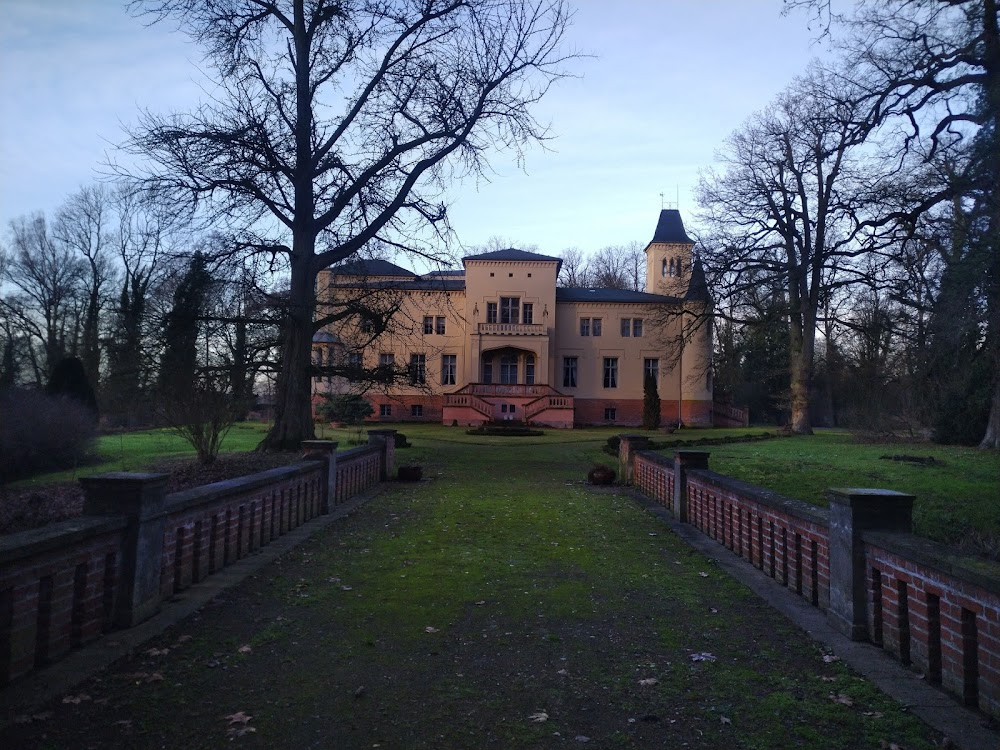Das Bernstein-Amulett Filming Locations

Where was Das Bernstein-Amulett filmed? Das Bernstein-Amulett was filmed in 3 locations across Germany in the following places:
Das Bernstein-Amulett Filming Locations
Berlin, Germany’s capital, dates to the 13th century. Reminders of the city's turbulent 20th-century history include its Holocaust memorial and the Berlin Wall's graffitied remains. Divided during the Cold War, its 18th-century Brandenburg Gate has become a symbol of reunification. The city's also known for its art scene and modern landmarks like the gold-colored, swoop-roofed Berliner Philharmonie, built in 1963.
Germany is a Western European country with a landscape of forests, rivers, mountain ranges and North Sea beaches. It has over 2 millennia of history. Berlin, its capital, is home to art and nightlife scenes, the Brandenburg Gate and many sites relating to WWII. Munich is known for its Oktoberfest and beer halls, including the 16th-century Hofbräuhaus. Frankfurt, with its skyscrapers, houses the European Central Bank.
Das Bernstein-Amulett (2004)
On the day of her golden wedding in 1994, Barbara Reichenbach's lost wedding gift, an amber amulet, reappears. Barbara is now forced to reveal her well-kept secret to her three children and her husband Alexander. Flashback to 1944: Weddings are celebrated on the Schlossgut Hagenow in eastern Germany. The pretty Comtesse Barbara von Ganski marries the charming physicist Alexander Reichenbach, who is exempted from working at the front as a scientist. As a pledge of his love, Alexander puts an amber amulet around his bride's neck. But not all guests wish the happy couple a good future: SS man Luschnat, for example, has had an eye on the bride himself, and the young estate manager Elisabeth is in love with Alexander. After a dispute between the carefree Alexander and the staunch Nazi Luschnat, Barbara's father, Baron Albin von Ganski, expelled his son-in-law from the house. Barbara follows her husband to Berlin and accepts the break with her conservative father. Through this turning point, Elisabeth, who is the secret, illegitimate daughter of the baron, sees her long-awaited chance of finally being recognized as an equal member of the family. The baron finally agrees. But when Barbara and Alexander's mother Gunhild and shortly afterwards Alexander returned from bombed Berlin after a heavy bombing attack, Elisabeth was once again on the sidelines from one day to the next. Gunhild confesses to her son that she is a converted Jew. In order to avoid persecution by the Nazis and to protect Barbara, Alexander reports as a soldier for front service without her knowledge. Meanwhile, Albin von Ganski hides Gunhild on the castle grounds. When the war finally comes to an end, Barbara, Elisabeth, Albin and his wife Henriette wait in eager anticipation for the liberation by the Russian troops. The feared atrocities do not materialize, but Barbara and her father are appalled when Elisabeth fraternises with the rude soldiers. Meanwhile, Barbara falls in love with the cultivated Russian officer Belajew, who protects her from attacks by his soldiers. But even he cannot help her when Albin von Ganski is executed one day for the alleged murder of a Russian prisoner of war. When her mother then commits suicide, Barbara is faced with a difficult decision: should she and Belayev leave their homeland? Just as the young woman is about to leave her past behind, she thinks she sees Alexander on the estate.

